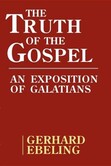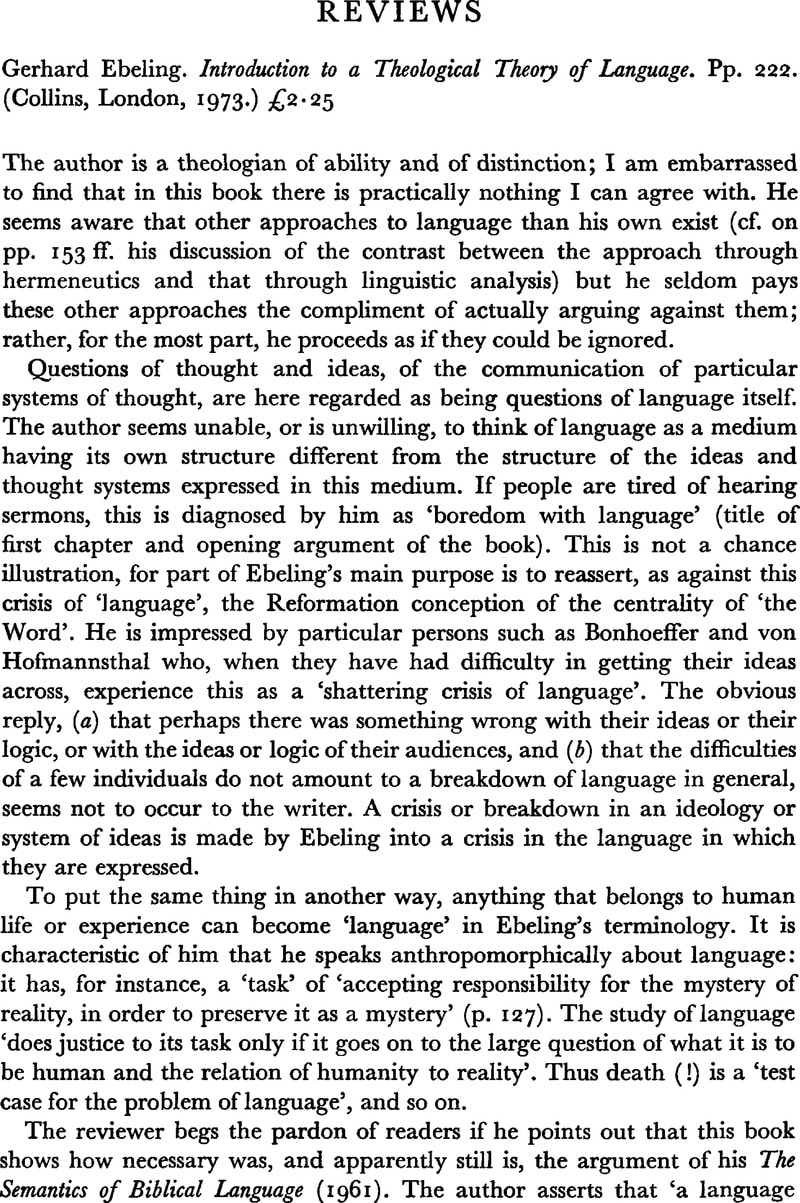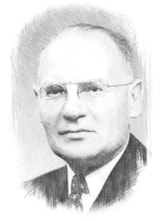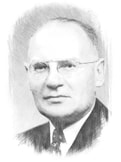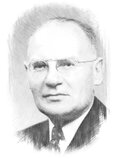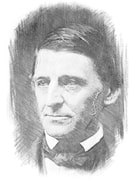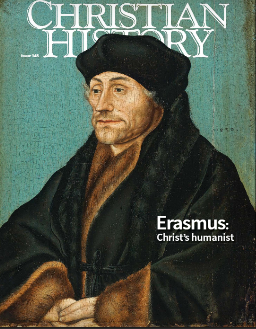E - Past Witnesses Files
- Gerhard Ebeling - V. Raymond Edmon - Charles Ellicott - Ralph Waldo Emerson - Charles Empey - Olaudah Equiano - Erasmus - Charles R Erdman - Benjamin Evans - Daniel Evans -
Gerhard Ebeling
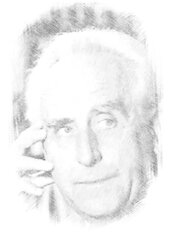
Gerhard Ebeling (Jun 6, 1912: Ebeling was born in Steglitz, Berlin.) Ebeling studied theology under Rudolf Bultmann at Marburg and Dietrich Bonhoeffer in the "illegal" seminary at Finkenwalde. After pastoring a Confessing Church congregation in Berlin during the war years, he joined the faculty at Tubingen, followed by decades as Professor of Fundamental Theology and Hermeneutics at the University of Zurich.
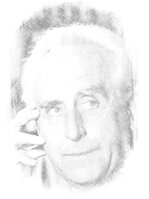 Gerhard Ebeling
Gerhard Ebeling
“The problem today, seen as a whole, is indeed not that there is any lack of institutions and publications which provide possibilities for speaking of God. On the contrary, the problem is how a genuine word of God is to be asserted in the midst of this tremendous inflation of existing possibilities.”
― Gerhard Ebeling, God and Word
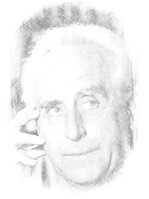 Gerhard Ebeling
Gerhard Ebeling
“. . . to take our bearings from the theology of the Reformers and at the same time to take modern thought seriously seems to be incompatible, or possible only by means of sorry compromises. For me, however, my vocation as a theologian stands or falls with the opposite view. For we can be evangelical theologians neither without the Reformers’ understanding of the Gospel nor without thinking within the field of present-day experience of reality. . .”
― Gerhard Ebeling, Word & Faith
"Sin is not hurtful because it is forbidden, but sin is forbidden because it is hurtful." -Arthur H Elfstarnd
v raymond edman
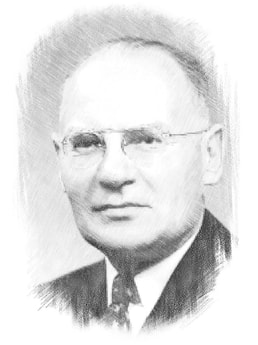 V Raymond Edman
V Raymond Edman
"The things which are seen are temporal," declares II Corinthians 4:18, "but the things which are not seen are eternal." Better then any material heritage that we can pass on to our children is the unwavering assurance that God will also be their God, even unto death. Wealth and health may not be their abiding portion, fortune and fame they may never have; but if only we, like Jacob, have brought them into acquaintance with the God of salvation, then they in their generation will find Him to be their unfailing Helper. They will know, as we have learned, that "he that cometh to God must believe that he is, and he is a rewarder of them that diligently seek him." (Heb 11:6). -V Raymond Edman; But God!; 1962
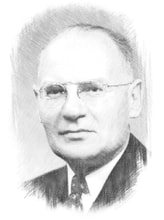 V Raymond Edman
V Raymond Edman
“But I could now see and understand what was meant by the passage, ‘Being justified by faith we have peace with God through our Lord Jesus Christ.’ I could see that the moment I believed, while up in the woods, all sense of condemnation had entirely dropped out of my mind; and that from that moment I could not feel a sense of guilt or condemnation by any effort that I could make. My sense of guilt was gone; my sins were gone; and I do not think I felt any more sense of guilt than if I never had sinned.”
― V. Raymond Edman, They Found the Secret: Twenty Lives That Reveal a Touch of Eternity
― V. Raymond Edman, They Found the Secret: Twenty Lives That Reveal a Touch of Eternity
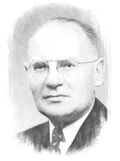 V Raymond Edman
V Raymond Edman
“When you know what God has done for you, the power and the tyranny of sin is gone and the radiant, unspeakable emancipation of the indwelling Christ has come, and when you see men and women who should be princes and princesses with God bound up by the show of things - oh, you begin to understand what the Apostle meant when he said he wished himself accursed from Christ that men might be saved!”
― V. Raymond Edman, They Found the Secret
― V. Raymond Edman, They Found the Secret
charles ellicott
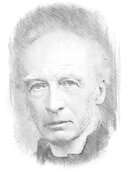
Charles John Ellicott is best known for his renowned Bible Commentary, as one of the most outstanding conservative scholars of the 18th century. He was born in England in 1819 and graduated from St. John's College, Cambridge. He regularly lectured at St. John's, and in 1847 he was ordained a Priest in the Anglican Church. From 1841 to 1848, he served as a rector and then became a Professor of Divinity, Cambridge, in 1860. In 1863 became the Lord Bishop of Gloucester and Bristol after serving as a Dean.
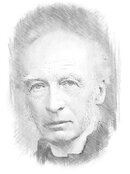 Charles Ellicott
Charles Ellicott
In St. Mark's report (Mark 12:29) our Lord's answer begins with the Creed of Israel ("Hear, O Israel, the Lord our God is one Lord"), and so the truth is in its right position as the foundation of the duty. It is significant (1) that the answer comes from the same chapter (Deuteronomy 6:4-5) which supplied our Lord with two out of His three answers to the Tempter (see Notes on Matthew 4:4; Matthew 4:7); and (2) that He does but repeat the answer that had been given before by the "certain lawyer" who stood up tempting Him, in Luke 10:25. In their ethical teaching the Pharisees had grasped the truth intellectually, though they did not realise it in their lives, and our Lord did not shrink, therefore, so far, from identifying His teaching with theirs. Truth was truth, even though it was held by the Pharisees and coupled with hypocrisy. --Charles Ellicott
ralph waldo emerson
charles empey
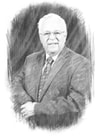 Charles Empey
Charles Empey
"Thy God whom thou serves continually, He will deliver thee." (Deut. 6:16)
Mary Tyler Moore said something that was profound…simple but profound. She said, "No one gets out of here without dying." Obviously, she was right. Even in the rapture that we Christians just hope we are available for will have to go through a death experience…instantaneously, but none the less these bodies are going to have to be dropped -Charles Empey; Hope of Deliverance; 10.12.21
Mary Tyler Moore said something that was profound…simple but profound. She said, "No one gets out of here without dying." Obviously, she was right. Even in the rapture that we Christians just hope we are available for will have to go through a death experience…instantaneously, but none the less these bodies are going to have to be dropped -Charles Empey; Hope of Deliverance; 10.12.21
olaudah equiano
May 25, 2023: Gospel Coalition: Amy Carmichael Shaped Me as a Mom
Review: ‘Church History’ by Simonetta Carr
In the mid-1700s, for example, a young boy was kidnapped from his home in Africa and sold into slavery. He became a Christian and eventually purchased his freedom. The faith he found amid these tragedies was sincere. He studied the Bible and evangelized people who crossed his path during his work as a merchant and consultant. Olaudah Equiano later wrote an autobiography of his life and faith that contributed to ending the slave trade in the British Empire.
Review: ‘Church History’ by Simonetta Carr
In the mid-1700s, for example, a young boy was kidnapped from his home in Africa and sold into slavery. He became a Christian and eventually purchased his freedom. The faith he found amid these tragedies was sincere. He studied the Bible and evangelized people who crossed his path during his work as a merchant and consultant. Olaudah Equiano later wrote an autobiography of his life and faith that contributed to ending the slave trade in the British Empire.
erasmus
charles r erdman
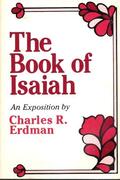
The moral condition has been accompanied by political disaster. Judah has been invaded and laid waste. Jerusalem has been surrounded by the enemy. Had it not been for divine intervention the nation would have been completely destroyed.....It is easy to imagine what the people might have answered to such and indictment: "Why do you call us apostate? We are the most religious people in the world. Just see our crowded Temple, our countless feasts." Isaiah replies: Ceremonial can't save. Indeed religious forms aside from faith and righteousness meet only with divine displeasure. --Charles R Erdman; The Book of Isaiah; 1954
benjamin evans
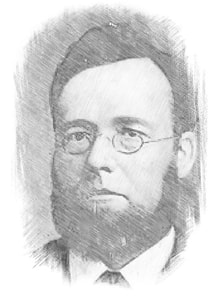
Benjamin Evans (23 February 1740 – 2 March 1821) was a Welsh congregational minister.
Evans was born at Ffynon-Adda, Meline, Pembrokeshire, on 23 February 1740. In his early days, while he was minister at Llanuwchllyn, Merionethshire (where he was ordained 1769), he met with a good deal of persecution and was compelled to apply to the King's Bench for a mandamus before he was allowed to conduct the services in peace. He removed in 1777 to Haverfordwest, and thence to Drewen in Cardiganshire, 24 June 1779, where he was much beloved, and remained till his death, 3 March 1821. His first duty here was to undo the work of his predecessor, who was in sympathy with the Arminian movement, then led by the Rev. David Lloyd of Llwynrhydowen.
Evans was born at Ffynon-Adda, Meline, Pembrokeshire, on 23 February 1740. In his early days, while he was minister at Llanuwchllyn, Merionethshire (where he was ordained 1769), he met with a good deal of persecution and was compelled to apply to the King's Bench for a mandamus before he was allowed to conduct the services in peace. He removed in 1777 to Haverfordwest, and thence to Drewen in Cardiganshire, 24 June 1779, where he was much beloved, and remained till his death, 3 March 1821. His first duty here was to undo the work of his predecessor, who was in sympathy with the Arminian movement, then led by the Rev. David Lloyd of Llwynrhydowen.
daniel evans
Daniel Evans (16 January 1774 – 3 March 1835), was an independent minister at Mynyddbach, Glamorganshire, Wales. In 1808 he removed to Mynyddbach, where he was again very successful. During six months, in 1828–9, he added no fewer than 650 to the membership of his churches. He died at Mynyddbach 3 March 1835.


